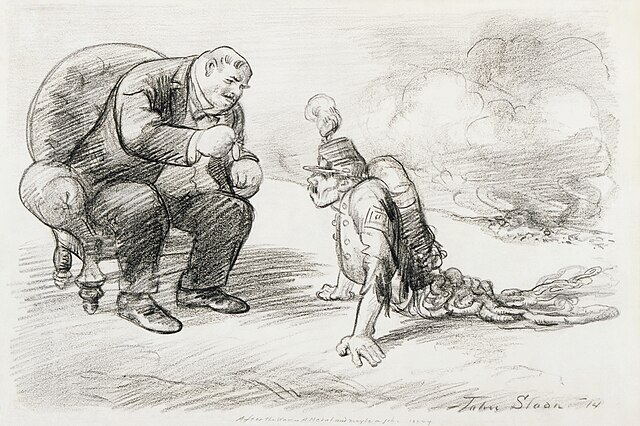
Historian Alfred McCoy joins us to discuss his new book, Cold War on Five Continents: A Global History of Empire and Espionage from Haymarket Books. "The Moment of Truth" with Jeff Dorchen follows the interview.
Help keep This Is Hell! completely listener supported and access bonus episodes by subscribing to our Patreon.
Please rate and review This Is Hell! wherever you get your podcasts. It really helps the show ascend the algorithm to reach new listeners.
The Assassination That Paved the Way for Trump’s Venezuela Attack / Séamus Malekafzali
Greatest Hits: Race, Religion, Capital, and Slavery in the 16th Century Atlantic / Gerald Horne

The two most canonical science fiction works when I started high school in the mid nineteen seventies were Dune, which around then was still a trilogy, and the Foundation series, also a trilogy. Dune was written by Frank Herbert, and Foundation by Isaac Asimov. Both authors were born in 1920. Herbert died in 1986, Asimov in 1992.
In both trilogies, humans have established themselves on planets all over the galaxy. In both trilogies, the organizing model of the galaxy is The Empire. Empire is, in fact, the name of the cloned multigenerational triumvirate ruler in Foundation. The head of the galactic empire in the Dune universe is The Padishah Emperor Shaddam IV of House Corrino.
I wonder how much those seminal science fiction trilogies – the Lord of the Rings and Chronicles of Narnia of science fiction – influenced the galactically imperial daydreams of today’s crop of eugenicist utilitarians calling themselves “long-termists.” I love the quotation from Vonnegut I keep seeing on social media that may or may not be a rebuttal to these would-be space edge-lord conquistadors: “To me, wanting every habitable planet to be inhabited is like wanting everybody to have athlete's foot.”
“Why do you find it necessary to call them edge lords,” you might ask. I didn’t. I called them Space Edge Lords. Because all three of the highest profile examples of over-privileged jerks only went to the edge of space. Richard Branson is the third, in case you forgot. They’re lords of the edge of space. Space edge lords. Also, ultimately the edge lord’s signature activities eventually end in ejaculation. This alludes to my earlier labeling of Foundation and Dune as perhaps seminal influences on these space edge lords and their lusting after planetary colonization. It’s all conjecture at this point, though, I admit.
You might not know this, but Vonnegut wrote a humorous story on the subject of inseminating the Andromeda galaxy. He wrote it for an anthology Harlan Ellison, the bad boy of science fiction, was putting together called Again, Dangerous Visions, an appropriate title for a follow up to his first such anthology, Dangerous Visions. Vonnegut’s story was called “The Big Space Fuck.” Read it and then see “2001: A Space Odyssey.” I guarantee you’ll laugh when you first see the ship, Discovery... read more



